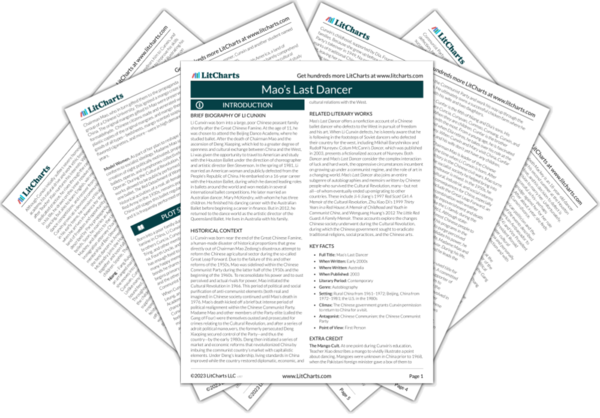In earlier years, Cunyuan’s suffering at home contrasted with Cunxin’s suffering in Beijing. Neither brother was happy, but Cunyuan’s despair encouraged Cunxin to work hard at the academy, since it represented his only chance to escape a life of grinding physical labor and rural poverty. Although the improved living standards under Deng have softened Cunyuan’s life somewhat, he remains discontented over his lack of freedom. His life still depends on the generosity of a Party that has not, in his experience, made policies that support the flourishing of the peasant class. And the story of his adopted daughter points toward one cruel consequence of the Party’s one-child policy; families desperate for a boy sometimes abandoned female infants so they could try for another child later.


